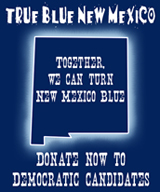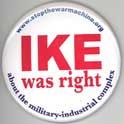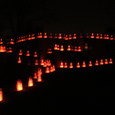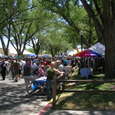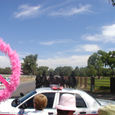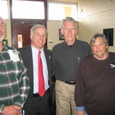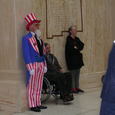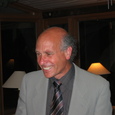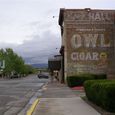« North Valley Pre-Legislative Forum Set for 1/4/07 | Main | Record Snows! »
Saturday, December 30, 2006
We Must Remember This
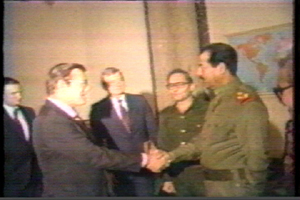
With all those of the hanging of Saddam circulating today, I think we should make a point of remembering this image of U.S. Special Envoy Donald Rumsfeld shaking hands with Hussein in 1983. Also check out this that travels down memory lane tracing America's relationship with Saddam. And don't miss today's post by Juan Cole, which summarizes the Top Ten Ways the US Enabled Saddam Hussein.
It's well documented that America provided Saddam's regime with intelligence and surveillance data for their war with Iran, as well as weaponry, bio-germs and WMD-related equipment, and who knows what other kinds of other help via the CIA over many years. Rummy's visit to Saddam occurred in an era when Iraq was using chemical weapons in attacks for which he later was indicted.
According to an article in the Guardian:
On November 1, 1983, the secretary of state, George Shultz, was passed intelligence reports of "almost daily use of CW [chemical weapons]" by Iraq.
However, 25 days later, Ronald Reagan signed a secret order instructing the administration to do "whatever was necessary and legal" to prevent Iraq losing the war.
In December Mr Rumsfeld, hired by President Reagan to serve as a Middle East troubleshooter, met Saddam Hussein in Baghdad and passed on the US willingness to help his regime and restore full diplomatic relations.
Mr. Rumsfeld has said that he "cautioned" the Iraqi leader against using banned weapons. But there was no mention of such a warning in state department notes of the meeting.
And the Washington Post reports:
Among the people instrumental in tilting U.S. policy toward Baghdad during the 1980-88 Iran-Iraq war was Donald H. Rumsfeld, now defense secretary, whose December 1983 meeting with Hussein as a special presidential envoy paved the way for normalization of U.S.-Iraqi relations. Declassified documents show that Rumsfeld traveled to Baghdad at a time when Iraq was using chemical weapons on an "almost daily" basis in defiance of international conventions.
...
The administrations of Ronald Reagan and George H.W. Bush authorized the sale to Iraq of numerous items that had both military and civilian applications, including poisonous chemicals and deadly biological viruses, such as anthrax and bubonic plague.
In addition to all the "help" we gave the regime prior to the current Iraq invasion, we can think about the noose tightening around Saddam's neck to the tune of at least a trillion U.S. dollars once all the costs are added up in this latest fiasco. And that's not counting the human value of all the lives lost or ruined by the war.
We made sure Saddam was hanged. We made sure Chile's recently departed butcher, Pinochet, was protected. Every time the same sorts of entitites gain financially. Every time innocent civilians suffer the brunt of the death and destruction. We help create the monsters, then we knock them down if necessary, "collateral damage" be damned. The war machine needs regular, generous feedings at almost any price -- morally or fiscally.
I strongly agree with Josh Marshall's take on the entire operation in Iraq. Excerpt:
This whole endeavor, from the very start, has been about taking tawdry, cheap acts and dressing them up in a papier-mache grandeur -- phony victory celebrations, ersatz democratization, reconstruction headed up by toadies, con artists and grifters ... this execution, ironically and pathetically, becomes a stand-in for the failures, incompetence and general betrayal of country on every other front that President Bush has brought us.
... This is what we're reduced to, what the president has reduced us to. This is the best we can do. Hang Saddam Hussein because there's nothing else this president can get right.
Finally, Robert Fisk weighs in, with his decades of wide, deep, personal experience in the region providing a special kind of clout reserved for onsite witnesses to history. See here and here.
December 30, 2006 at 09:56 AM in Iraq War | Permalink


















